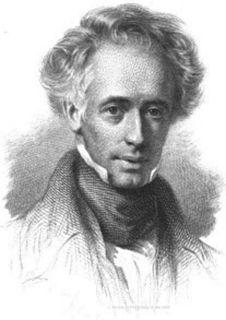A Quote by Zhuangzi
When he tries to extend his power over objects, those objects gain control of him. He who is controlled by objects loses possession of his inner self... Prisoners in the world of object, they have no choice but to submit to the demands of matter! They are pressed down and crushed by external forces: fashion, the market, events, public opinion. Never in a whole lifetime do they recover their right mind!... What a pity!
Quote Topics
Choice
Control
Controlled
Crushed
Demands
Down
Down And
Events
Extend
External
External Forces
Fashion
Forces
Gain
Him
His
Inner
Inner Self
Lifetime
Loses
Market
Matter
Mind
Never
No Choice
Object
Objects
Opinion
Over
Pity
Possession
Power
Pressed
Prisoners
Public
Public Opinion
Recover
Right
Right Mind
Self
Submit
Those
Tries
Whole
Whole Life
World
Related Quotes
Holding onto and manipulating physical objects is one of the things we learn earliest and do the most. It should not be surprising that object control is the basis of one of the five most fundamental metaphors for our inner life. To control objects, we must learn to control our bodies. We learn both forms of control together. Self-control and object control are inseparable experiences from earliest childhood. It is no surprise that we should have as a metaphor-a primary metaphor-Self Control is Object Control.
Fashion is not a real element of beauty in external objects; and to persons who possess a good endowment of Form, Constructiveness and Ideality, intrinsic elegance is much more pleasing and permanently agreeable, than forms of less merit, recommended merely by being new. Hence there is a beauty which never palls, and there are objects over which fashion exercises no control.
According to the technical language of old writers, a thing and its qualities are described as subject and attributes; and thus a man's faculties and acts are attributes of which he is the subject. The mind is the subject in which ideas inhere. Moreover, the man's faculties and acts are employed upon external objects; and from objects all his sensations arise. Hence the part of a man's knowledge which belongs to his own mind, is subjective: that which flows in upon him from the world external to him, is objective.
Inanimate objects can be classified scientifically into three major categories: those that don't work, those that break down and those that get lost. The goal of all inanimate objects is to resist man and ultimately to defeat him, and the three major classifications are based on the method each object uses to achieve its purpose. As a general rule, any object capable of breaking down at the moment when it is most needed will do so.
One of the most destructive forces in the world is love. For the following reason: The world is a conglomeration of objects, no, of events and the approachings of events towards objects, therefore of becoming stases static stagnant, of all that is unreal. You get in the world, you get your daily life your routine doesn’t matter if you’re rich poor legal illegal, you begin to believe what doesn’t change is real, and love comes along and shows all these unchangeable for ever fixtures to be flimsy paper bits. Love can tear anything to shreds.
Man never ceases to seek knowledge about the objects of his experiences, to understand their meaning for his existence and to react to them according to his understanding. Finally, out of the sum total of the meanings that he has deduced from his contacts with numerous single objects of his environment there grows a unified view of the world into which he finds himself "thrown" (to use an existentialist term again) and this view is of the third order.
When objects are presented within the context of art (and until recently objects always have been used) they are as eligible for aesthetic consideration as are any objects in the world, and an aesthetic consideration of an object existing in the realm of art means that the object's existence or functioning in an art context is irrelevant to the aesthetic judgment.
As you are aware, no perceptions obtained by the senses are merely sensations impressed on our nervous systems. A peculiar intellectual activity is required to pass from a nervous sensation to the conception of an external object, which the sensation has aroused. The sensations of our nerves of sense are mere symbols indicating certain external objects, and it is usually only after considerable practice that we acquire the power of drawing correct conclusions from our sensations respecting the corresponding objects.
Psycho-analysis has taught us that a boy's earliest choice of objects for his love is incestuous and that those objects are forbidden ones - his mother and his sister. We have learnt, too, the manner in which, as he grows up, he liberates himself from this incestuous attraction. A neurotic, on the other hand, invariably exhibits some degree of psychical infantilism. He has either failed to get free from the psychosexual conditions that prevailed in his childhood or he has returned to them - two possibilities which may be summed up as developmental inhibition and regression.









































